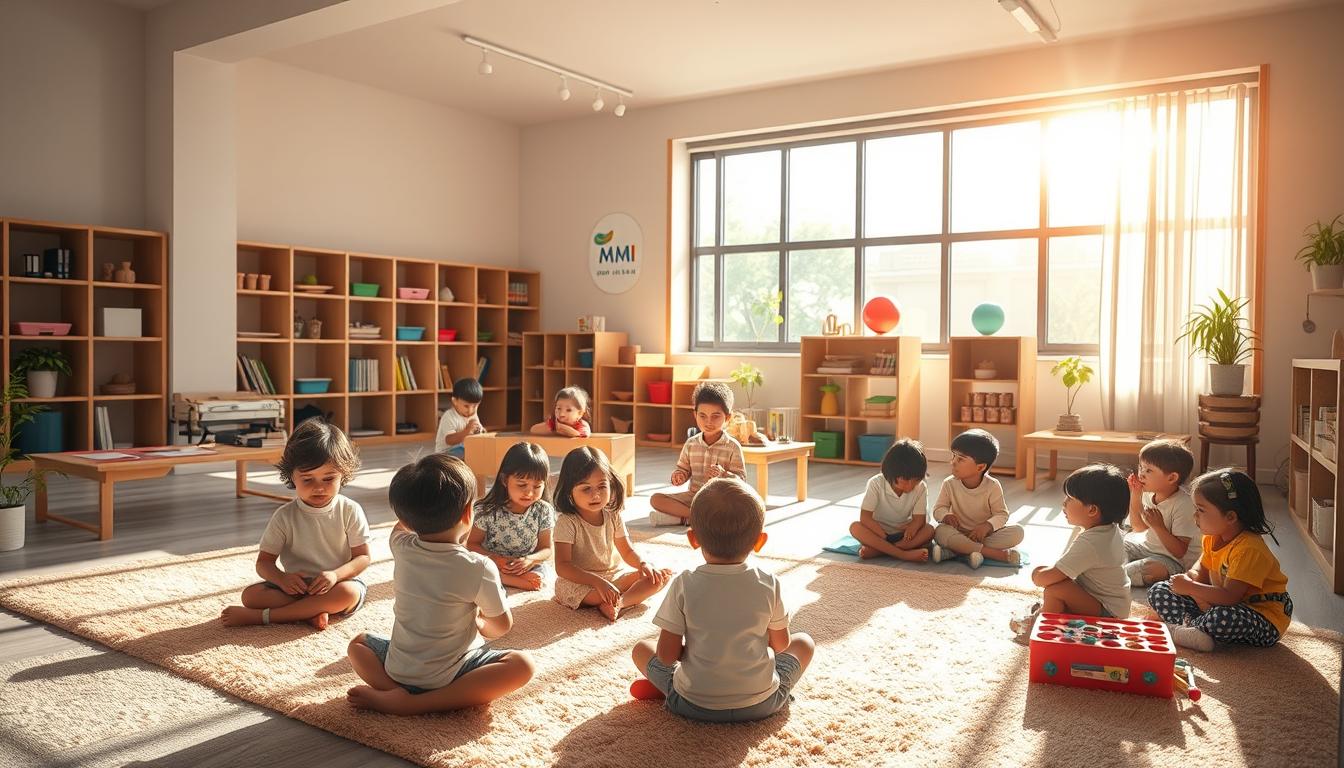How To Find The Best Preschools In India?

Strong 8k brings an ultra-HD IPTV experience to your living room and your pocket.
The early education setting in India has dramatically changed in the past few years. The need for high-quality preschools has increased as a result of the National Education Policy(NEP) 2020, and also the understanding of parents about the early childhood program and education. Furthermore, the preschool market, which was expected to be worth $4.2 billion in 2023, is now expected to grow to $10.2 billion by 2032. Additionally, finding the best preschools in India has become a top priority for parents. They are looking for the ideal start for their kids’ scholastic journey. However, multiple options often create confusion.
So, this guide will help you opt the right one. Have a look!
Understanding The Importance of Early Childhood Programs
Early childhood programs play a crucial role in a child's cognitive, emotional, and social development. The NEP 2020 emphasizes the foundational stage (ages 3-8) as a critical period for learning, advocating for play-based and activity-based curricula.
Key Factors To Consider When Choosing a Preschool
When searching for the best preschools in India, consider the following aspects:
1. Curriculum and Teaching Methodology
Look for preschools that offer a balanced curriculum integrating play-based learning, STEM activities, and language development. Moreover, the incorporation of mother tongue instruction, as recommended by the CBSE, can enhance comprehension and cognitive skills.
2. Teacher Qualifications and Training
Qualified and well-trained educators are essential for delivering effective early childhood programs. Also, ensure that the preschool invests in continuous professional development for its staff.
3. Infrastructure and Safety Measures
A safe and stimulating environment is vital for young learners. Check for child-friendly facilities, clean classrooms, secure premises, and appropriate safety protocols.
4. Parental Involvement and Communication
Preschools that encourage parental participation and maintain transparent communication foster a supportive learning community. Moreover, regular updates on a child's progress and involvement in school activities can enhance the educational experience.
Types of Preschools in India
India offers a variety of preschool formats catering to different educational philosophies, learning styles, and parental expectations. Therefore, understanding these types can help you identify what best suits your child’s needs.
1. Montessori Preschools
Inspired by Dr. Maria Montessori’s philosophy, these schools focus on self-directed activity, hands-on learning, and collaborative play. Children work with specially designed materials under the guidance of trained teachers, eventually promoting independence, concentration, and respect for a child’s natural development.
Ideal for: Parents who value a structured yet flexible approach where children learn at their own pace.
2. Playway or Activity-Based Preschools
These preschools use play as the primary mode of learning. Activities such as storytelling, music, role play, games, and art are integrated into the curriculum to stimulate creativity and emotional development.
Ideal for: Younger children who thrive in fun, engaging, and dynamic environments.
3. Reggio Emilia Approach
Originating in Italy, this method believes that children are capable of directing their own learning. Teachers act as collaborators rather than instructors. Also, emphasis is placed on exploration, documentation, and project-based learning.
Ideal for: Parents who want their child to explore their environment freely and develop critical thinking skills early on.
4. Waldorf/Steiner Preschools
This philosophy focuses on imaginative play, storytelling, music, and nature-based learning. It further avoids early academic pressure and aims to nurture emotional, intellectual, and spiritual growth.
Ideal for: Families looking for a holistic, nature-focused, and creative development path.
5. International or Global Curriculum Preschools
These include IB PYP (International Baccalaureate Primary Years Programme) or schools following American, British, or other global curricula. They also blend global standards with early childhood methodologies.
Ideal for: Parents looking for globally recognized, progressive education and planning to continue international schooling.
6. Hybrid/Modern Preschools
These are contemporary Indian preschools that blend multiple educational approaches, like Montessori, Playway, and tech-based learning. They may also include features like CCTV access, mobile apps, and smart classrooms.
Ideal for: Parents seeking a balance between traditional values and modern educational tools.
Navigating The Selection Process
To identify the best preschool for your child, follow these steps:
- Research and Shortlist: Utilize online platforms, such as Edustoke and SchoolMyKids, to explore preschools in your area.
- Visit and Observe: Schedule visits to shortlisted preschools to assess the environment, interact with staff, and observe classroom dynamics.
- Evaluate Curriculum: Review the preschool's curriculum to ensure it aligns with your educational values and your child's learning style.
- Check Credentials: Verify the qualifications of teachers and the school's accreditation status.
- Seek Feedback: Connect with other parents to gain insights into their experiences with the preschool.
- Assess Logistics: Consider factors such as location, transportation, fees, and schedule compatibility.
Frequently Asked Questions (FAQs)
Q1: What is the ideal age to start preschool in India?
Answer: Most children in India start preschool between the ages of 2 to 3 years, depending on their emotional and physical readiness. Also, NEP 2020 recommends foundational learning to begin at age 3.
Q2: How many hours should a preschooler attend per day?
Answer: Preschool duration typically ranges between 2.5 to 4 hours per day for toddlers. Further, as children grow older, it can gradually increase to prepare them for formal school timings.
Q3: Are Montessori schools better than other preschools?
Answer: Montessori schools offer unique benefits like self-paced learning and practical skill development. However, whether it is better depends on your child's personality and learning style. Some children may also thrive better in play-based or structured environments.
Q4: What are the fees for preschools in Gurugram and Noida?
Answer: Fees vary widely based on location, curriculum, and facilities. On average:
- Preschools in Gurugram: ₹70,000 – ₹2,00,000 per year
- Preschool in Noida: ₹40,000 – ₹1,50,000 per year
Premium international schools may charge higher.
Q5: What are the signs of a good preschool?
Answer: A quality preschool will have:
- Safe, clean, and child-friendly infrastructure
- Trained and caring staff
- Balanced curriculum (play + academics)
- Transparent communication with parents
- Low student-teacher ratio
- Also, positive reviews and feedback from other parents
Embracing the Future of Early Education
So, the evolution of early childhood education in India is reflecting a broader recognition of its importance in shaping the future generations. Also, the need for high-quality early learning is greater due to programs like NEP 2020 and funding for preschool facilities.
Further, if you are looking for the best preschool for your child, remember that your choice must align with your family’s values, meet the child’s developmental needs, and foster love for learning.
Modern Montessori International is a trusted global preschool brand that offers top-quality early childhood education based on Dr. Montessori’s principles. Having centers across India, including preschool in Noida and around the world, MMI blends traditional Montessori methods with modern techniques. Enroll your child today!
Note: IndiBlogHub features both user-submitted and editorial content. We do not verify third-party contributions. Read our Disclaimer and Privacy Policyfor details.




